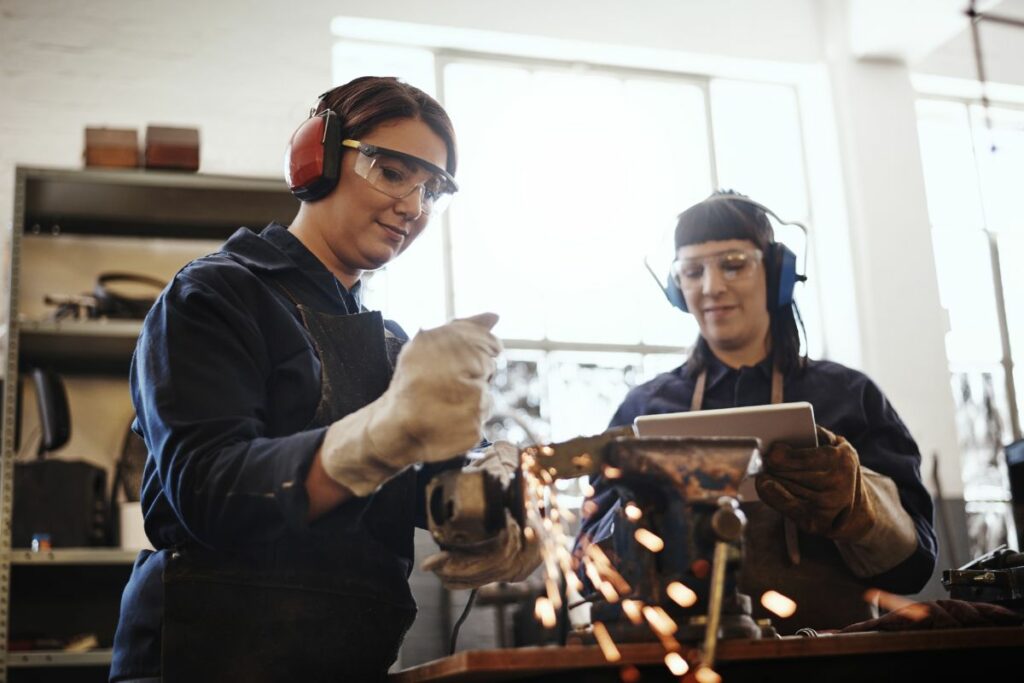
In a world constantly evolving with technological advancements, certain traditional skills stand as timeless pillars, serving as a bridge between the past and the future. One such skill is welding, a craft that has been shaping industries for centuries. As we move into the future, the responsibility falls on experienced welders to pass down their knowledge to the younger generation of enthusiasts. This not only ensures the preservation of a valuable skill but also paves the way for innovation and progress in the field.
Welding is more than just joining metal pieces; it’s an art that demands precision, creativity, and a deep understanding of materials. For years, seasoned welders have been the unsung heroes behind the infrastructure we often take for granted – from towering skyscrapers to intricate metal sculptures. However, with these skilled artisans approaching retirement, there’s a pressing need to share their wealth of knowledge with the next generation.
One way to achieve this seamless transfer of knowledge is through mentorship programs. Pairing experienced welders with aspiring novices creates a great learning environment where skills are not just taught but also absorbed through hands-on experience. These programs foster a sense of community within the welding industry, bridging the generation gap and instilling a sense of pride in passing on the torch to future craftsmen.
The mentor-mentee relationship in welding extends beyond the technical aspects of the craft. Seasoned welders bring with them a wealth of practical knowledge – the kind that isn’t found in textbooks. They share anecdotes of challenges overcome, lessons learned from mistakes, and the intricate details that can only be understood through years of dedicated practice. This transfer of tacit knowledge is invaluable, providing young enthusiasts with a deep understanding of the craft that goes beyond the technical know-how.
Moreover, mentorship programs create a sense of continuity in the welding community. As experienced welders retire, they can rest assured that their legacy lives on through the skills and expertise imparted to the next generation. This sense of passing down a rich tradition instills a deep sense of responsibility and pride in young welders, motivating them to carry the torch forward and push the boundaries of what welding can achieve in the future.
In addition to mentorship, utilising modern technology can enhance the learning experience for young enthusiasts. Virtual reality (VR) and augmented reality (AR) simulations can provide a safe yet realistic environment for novices to practice welding techniques before they step into a workshop. These technologies not only aid in skill development but also make learning more accessible, breaking down geographical barriers and allowing aspiring welders from around the world to benefit from the expertise of seasoned professionals.
Beyond formal mentorship programs and technological innovations, creating a culture of continuous learning within the welding community is crucial. Encouraging workshops, seminars, and collaborative projects can foster an environment where knowledge is shared freely. Experienced welders can conduct masterclasses, sharing advanced techniques and insights gained through years of experience. This not only benefits the next generation but also invigorates the seasoned welders, providing them with a platform to showcase their expertise and stay engaged with the evolving landscape of welding technology.
The future of welding lies in the hands of the next generation of enthusiasts. As experienced welders approach retirement, it is our collective responsibility to ensure that their invaluable knowledge is passed down seamlessly. Through mentorship programs, technological integration, and a culture of continuous learning, we can preserve the art of welding while propelling it into a new era of innovation. By investing in the education and mentorship of young welders, we not only secure the future of the craft but also contribute to the growth and advancement of industries that rely on the skilled hands of welders around the globe.